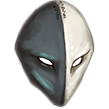The people of the Inner Sea region speak dozens of different languages, along with hundreds of dialects and regional variations. While a character can generally get by with Taldane, also known as Common, knowing another language is vital in some regions. Being able to speak these tongues can help you with negotiation, spying on enemies, or just conducting simple commerce. Languages also afford you the chance to contextualize your character in the world and give meaning to your other character choices.
Your ancestry entry states which languages you know at 1st level. Typically, this means you can both speak and read these languages. Having a positive Intelligence modifier grants a number of additional languages equal to your Intelligence modifier. You can choose these languages from the list presented in your character's ancestry entry and from those available from your region or ethnicity. Ask your GM if there's a language you want to select that isn't on these lists.
The languages presented here are grouped according to how common they are throughout the Inner Sea region. Languages that are common are regularly encountered around the Inner Sea, even among those who aren't native speakers. Languages that are uncommon (see the Uncommon Languages table and Regional Languages) are most frequently spoken by native speakers, but they are also spoken by certain scholars and others interested in the associated cultures.
Many uncommon languages are spoken by natives of other planes who rarely appear near the Inner Sea unless summoned. Mortals learning these languages might spend a lifetime without meeting a native speaker.
It is possible for your character to learn languages later in their adventuring career. Selecting the Multilingual feat, for example, grants a character two new languages chosen from those listed below. If your Intelligence changes later on, you also adjust your number of languages accordingly. Other abilities and effects might grant access to common or uncommon languages, as detailed in their descriptions. Rare or secret languages can only be discovered through play.
Common Languages
| Language | Speakers |
| Common | Humans, dwarves, elves, halflings, and other common ancestries |
| Draconic | Dragons, reptilian humanoids |
| Dwarven | Dwarves |
| Elven | Elves, aiuvarins |
| Fey | Fey, centaurs, plant and fungus creatures |
| Gnomish | Gnomes |
| Goblin | Goblins, hobgoblins, bugbears |
| Halfling | Halflings |
| Jotun | Giants, ogres, trolls, ettins, cyclopes |
| Orcish | Orcs, dromaars |
| Sakvroth | Subterranean civilizations, serpentfolk |
|
Uncommon Languages
| Language | Speakers |
| Aklo | Evil fey, otherworldly monsters |
| Chthonian | Demons |
| Diabolic | Devils |
| Empyrean | Angels and other celestials |
| Kholo | The hyena-like kholos |
| Necril | Ghouls, intelligent undead |
| Petran | Earth elemental creatures |
| Pyric | Fire elemental creatures |
| Shadowtongue | Nidalese, Netherworld creatures |
| Sussuran | Air elemental creatures, flying creatures |
| Thalassic | Aquatic creatures, water elemental creatures |
| Muan | Wood elemental creatures |
| Talican | Metal elemental creatures |
Regional languages depend on the game world you're playing in. Chapter 1: Introduction lists the regional languages of the Pathfinder world and where they're spoken (page 34).
Regional languages are uncommon, but characters from that region have access to choose them at character creation. For characters with less exposure to the region or language, check with your GM to make sure speaking that language makes sense for your character.
Most characters learn the Common language. This is the most widely used language in the region where the campaign takes place. In the Inner Sea region of Golarion, the Common tongue is Taldane, for example. Characters with Common might face a language barrier if they travel somewhere with a different Common language.
The language entry for most characters lists languages they use to communicate in spoken words. However, you might know the signed languages associated with the languages you know, or how to read lips. You can learn these by taking the Sign Language or Read Lips skill feats, or both. If you are creating a character who is deaf, hard of hearing, or unable to speak, discuss with your GM whether it makes sense for your character to know sign languages or lip reading. If so, your GM might allow you to select one of these feats for free (even if you don’t meet the prerequisites) to represent your character concept.
 Licenses
Sources
Licenses
Sources
 Contact Us
Contributors
Support the Archives
Maximize Menu
Contact Us
Contributors
Support the Archives
Maximize Menu
 Licenses
Sources
Licenses
Sources
 Contact Us
Contributors
Support the Archives
Contact Us
Contributors
Support the Archives









